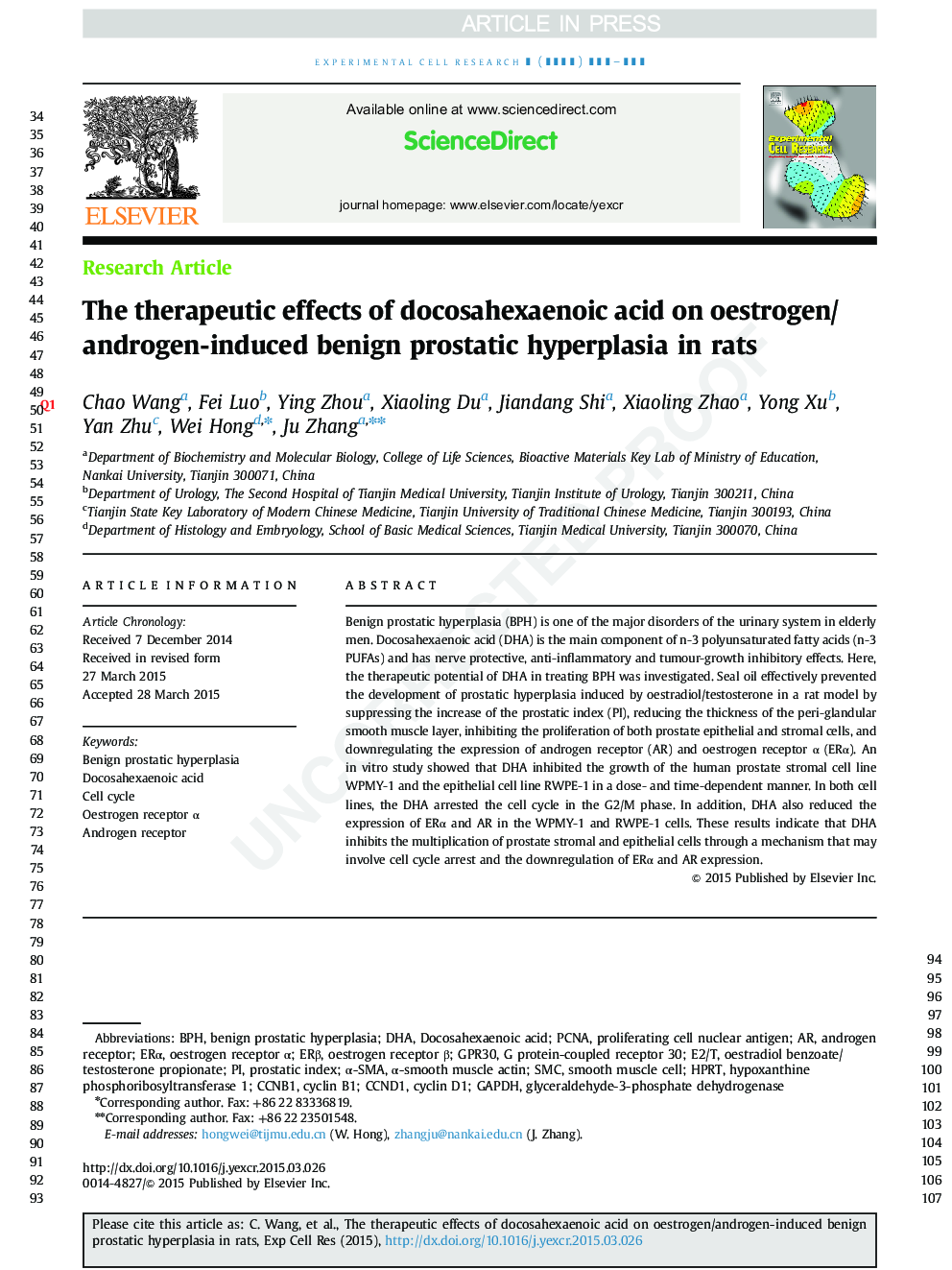| Article ID | Journal | Published Year | Pages | File Type |
|---|---|---|---|---|
| 10903703 | Experimental Cell Research | 2016 | 11 Pages |
Abstract
Benign prostatic hyperplasia (BPH) is one of the major disorders of the urinary system in elderly men. Docosahexaenoic acid (DHA) is the main component of n-3 polyunsaturated fatty acids (n-3 PUFAs) and has nerve protective, anti-inflammatory and tumour-growth inhibitory effects. Here, the therapeutic potential of DHA in treating BPH was investigated. Seal oil effectively prevented the development of prostatic hyperplasia induced by oestradiol/testosterone in a rat model by suppressing the increase of the prostatic index (PI), reducing the thickness of the peri-glandular smooth muscle layer, inhibiting the proliferation of both prostate epithelial and stromal cells, and downregulating the expression of androgen receptor (AR) and oestrogen receptor α (ERα). An in vitro study showed that DHA inhibited the growth of the human prostate stromal cell line WPMY-1 and the epithelial cell line RWPE-1 in a dose- and time-dependent manner. In both cell lines, the DHA arrested the cell cycle in the G2/M phase. In addition, DHA also reduced the expression of ERα and AR in the WPMY-1 and RWPE-1 cells. These results indicate that DHA inhibits the multiplication of prostate stromal and epithelial cells through a mechanism that may involve cell cycle arrest and the downregulation of ERα and AR expression.
Keywords
PCNACCNB1α-SMACyclin B1SMCGAPDHCCND1HprtGPR30ERαERβCyclin D1Proliferating Cell Nuclear Antigendocosahexaenoic acidα-smooth muscle actinDHASmooth muscle cellBenign prostatic hyperplasiaBPHHypoxanthine phosphoribosyltransferase 1Cell cycleglyceraldehyde-3-phosphate dehydrogenaseAndrogen ReceptorOestrogen receptor αG protein-coupled receptor 30
Related Topics
Life Sciences
Biochemistry, Genetics and Molecular Biology
Cancer Research
Authors
Chao Wang, Fei Luo, Ying Zhou, Xiaoling Du, Jiandang Shi, Xiaoling Zhao, Yong Xu, Yan Zhu, Wei Hong, Ju Zhang,
